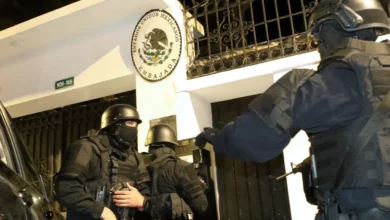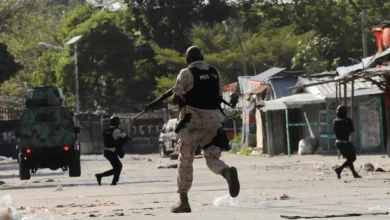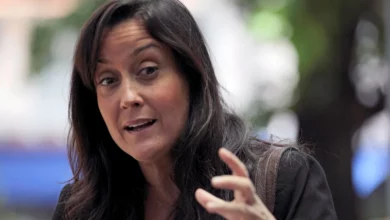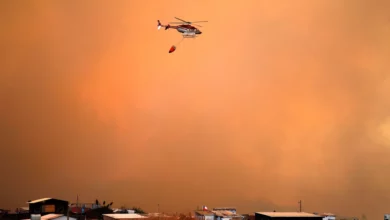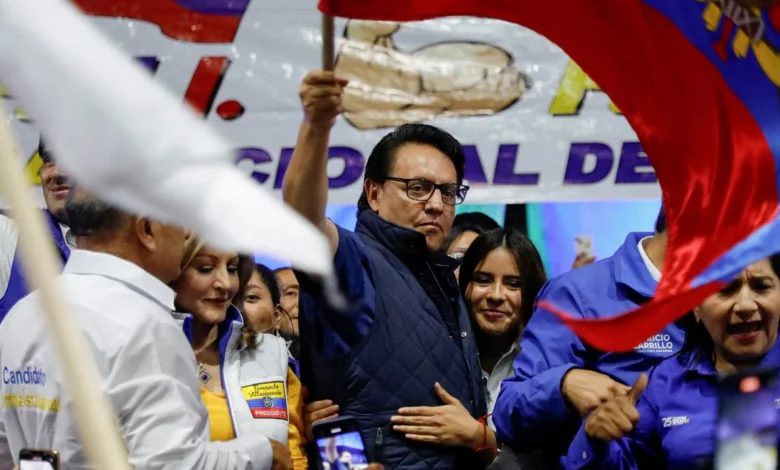
“I was leaving the place with Fernando and, because people were pushing and shoving [to get close to him], I got separated about one to two meters,” Molina, who is running for re-election in the National Assembly, told CNN.
“As he (Villavicencio) approached the car, there was a man with a flag around his neck that said ‘Fernando Villavicencio for President.’ The man ran around the car to the other side, pulled out a gun and started shooting,” she said.
The last thing Molina remembered before passing out was Villavicencio shaking as bullets hit him in the head, she said. “I then felt like something hit me in the face and fell to the floor. When I regained consciousness, I could still hear gunshots and there were many people injured around me,” she added.
The brutal murder of Villavicencio, an outspoken anti-corruption candidate and former investigative journalist, has shaken the country ahead of this Sunday’s crucial presidential and legislative elections. It has also brought international attention to the powerful criminal organizations driving the violence that has plagued Ecuador.
The suspected shooter died in police custody, officials said, while six Colombian nationals were arrested in connection with the killing. The suspects are members of organized criminal groups, said Ecuador’s Interior Minister Juan Zapata, citing preliminary evidence.
Several other politicians have been assassinated this year. On Monday, a left-wing local party official, Pedro Briones, was shot dead in Esmeraldas province, officials said. Last month, Agustin Intriago, the mayor of Ecuador’s sixth largest city Manta, was shot dead alongside a young athlete he was talking with on the street, and in May, candidate-elect Walker Vera was murdered just before he was going to take office in the city of Muisne, Esmeraldas province.
The root of this political violence is the fact that Ecuador is a transit point in the cocaine route from South America to the United States and Europe, Jan Topic, one of several candidates running for president, told CNN. Porous borders, he said, make it easy for transnational drug cartels to operate in the country.
Cartel violence
The dire situation is a stark change from a decade ago, when Ecuador was known as a relatively safe country in the region. According to figures by the Ecuadorian National Police, the murder rate in 2016 was 5.8 homicides per 100,000 people. By last year, it had spiked to 25.6, a similar level to that of Colombia and Mexico, countries with a long history of drug cartel violence.
Now, foreign syndicates like Mexican cartels, Brazilian urban gangs, and even Albanian mafia cells are working with local Ecuadorian criminal groups to fuel the ongoing conflict, say analysts. A report published in March by the United Nations Office on Drug and Crime said “traffickers from the Balkans and members of Italian crime groups have set up in Ecuador to establish supply lines to European markets.”
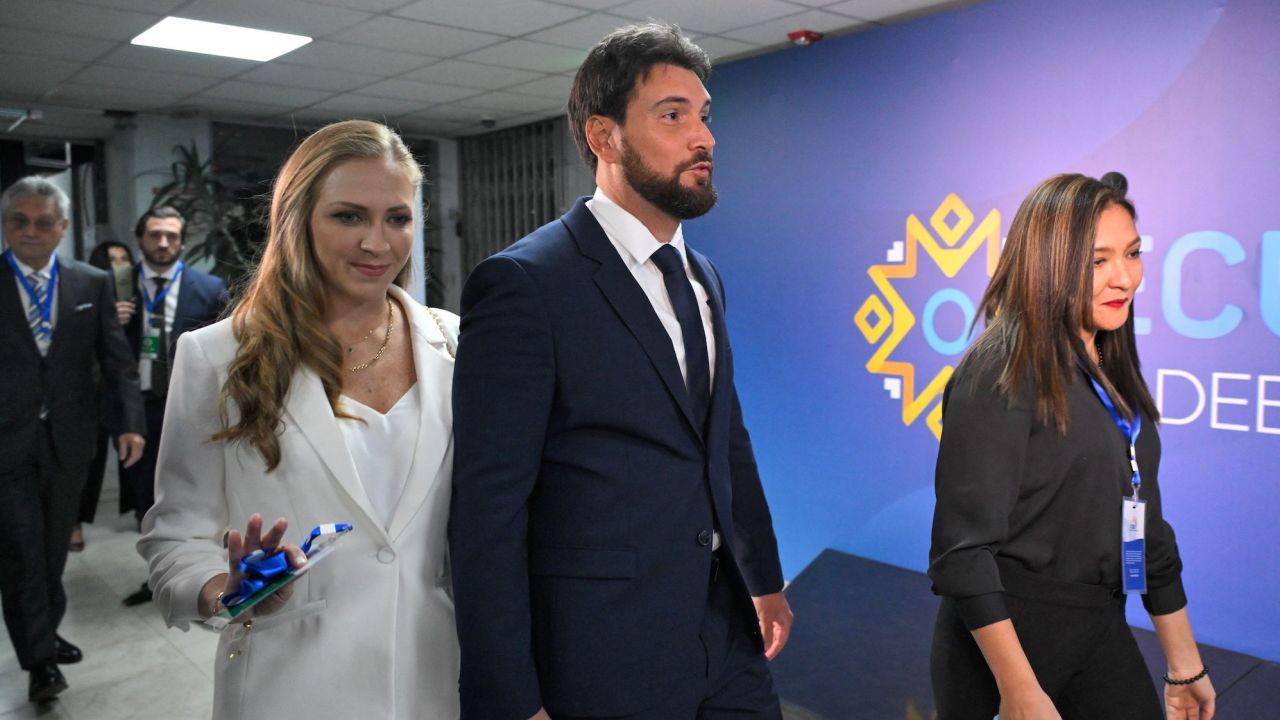
Drug money has helped fuel corruption in the country, said the presidential candidate Topic. “All of that cocaine and all of that heroine that comes into the country helps to finance the corruption of politicians, cops, soldiers, judges and district attorneys,” he said.
“By the very fact that we’re not controlling our borders, we’re getting an influx of money that is literally corrupting the country,” Topic added.
Tackling crime has been high on the political agenda in the runup to this year’s snap poll, even more so since Villavicencio’s assassination. Political candidates have scrambled in the past week to reemphasize their approach to the problem.
Topic, a businessman who has had a stint fighting with the French Foreign Legion, has been described as the “Ecuadorian [Nayib] Bukele” – in reference to the Salvadorean president known for his iron first strategy against criminal gangs.
Topic told CNN that while he admires Bukele, he would be more careful when it comes to respecting human rights. “I admire their [Bukele and other advocates of mano dura] crystal clear understanding of the root cause of the problem… and determination. That’s something we don’t currently have in Ecuador. What we have is a fearful leadership that doesn’t make decisions because they’re afraid of the mafias and public opinion,” Topic said.
Andrea González Náder – who was Villavicencio’s running mate – told CNN that the fight against criminal gangs and corruption was Villavicencio’s main objective when he was alive. Those aims have not changed, she told CNN from a secret location in Ecuador, which police asked CNN not to reveal for her protection.
The 36-year-old environmentalist stressed that she wants to change Ecuador for the better. “I want this country to be a place of peace, a productive country… I believe Ecuador is a paradise and they have turned it into hell,” she said, referring to criminal groups and corrupt politicians.
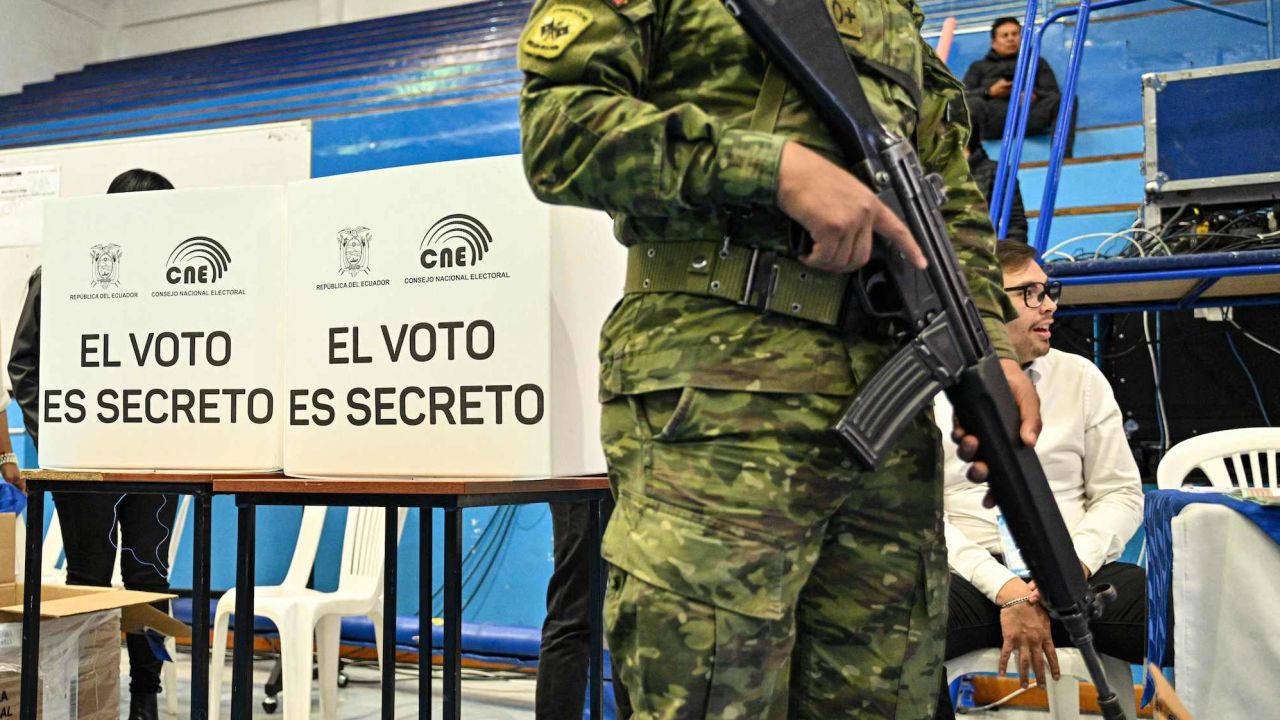
During a televised presidential debate on Sunday, election frontrunner Luisa González said she would strengthen Ecuador’s security forces and intelligence systems.
González, who is from the Citizen Revolution Movement party, the political coalition of former leftist President Rafael Correa, also discussed restarting a joint intelligence task force with Colombia. “I’ve already had conversations with European ambassadors from the European Union with the Colombian President [Gustavo Petro] and we will restore security for all of you, Ecuadorian families,” she said.
Molina, who is a veterinarian, now risks becoming partially blind from last week’s attack, but she remains defiant. “We are not going to be subdued by mafiosos, corrupt politicians who want to be elected to the assembly, the Latin Kings, the [Mexican] Zetas [cartel], the Albanians that are now operating in the country, extortionists, kidnappers and all those terrorizing the population,” she said.
Despite her injury, she still plans to run in the August 20 elections, insisting that she wants to ensure justice is served.

